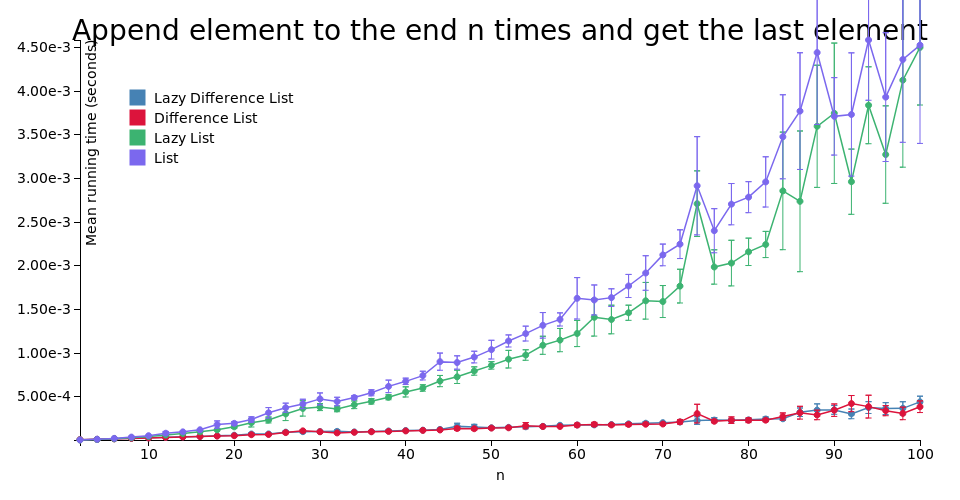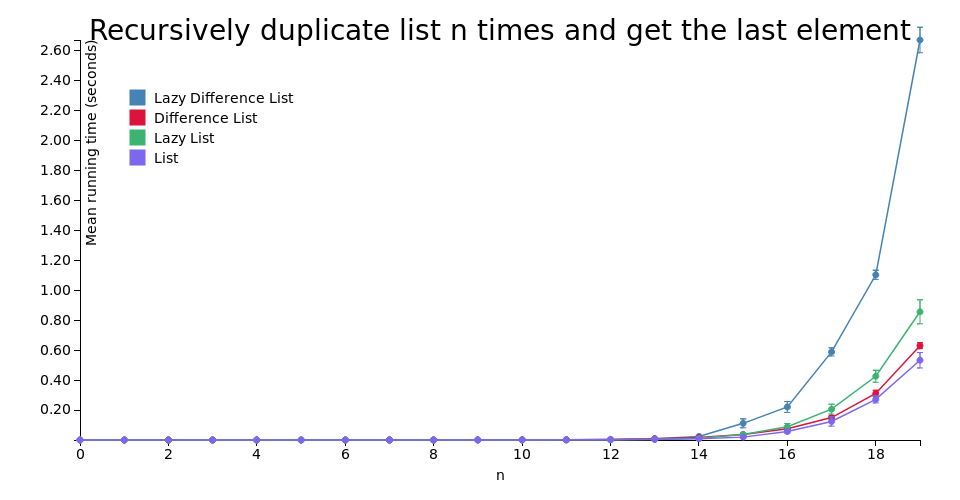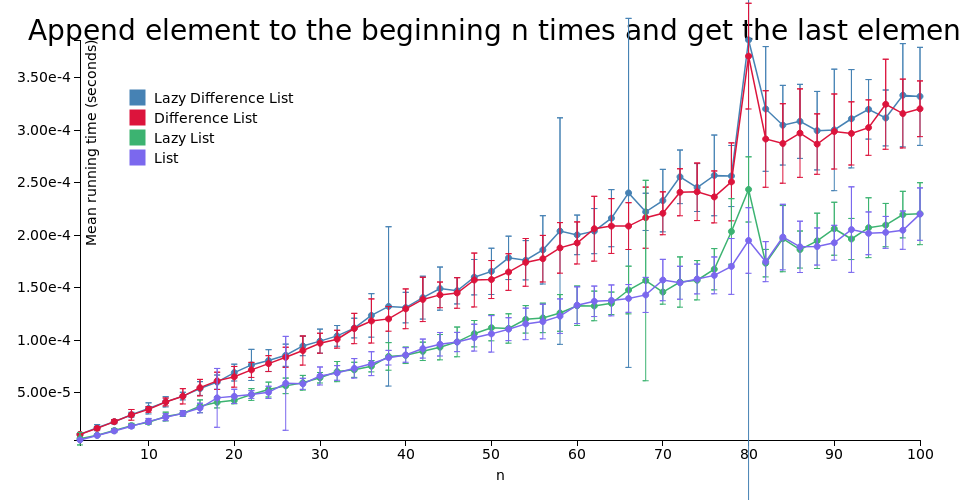"Difference containers" is a name of this implementation of difference lists. This library is usable with both Data.List and Data.List.Lazy (and potentially can be used with any list-like structure with mempty value and append operation).
Suppose there is a container type cnt :: * -> * with associative operation append :: ∀ a. cnt a -> cnt a -> cnt a, the time complexity of which is dependent on the first argument's size and is constant for any size of the second.
Then, a structure of form append (append a b) c is equivalent to the one of form append a (append b c), but the latter requires less computations, because the size of a plus the size of b is generally less than the size of a plus the size of append a b.
This observation can be utilized for performance optimisation. It is possible to delay a computation that intensively appends to the right, and "rebalance the parentheses" before computing the final value.
See also: R. John Muir Hughes, A novel representation of lists and its application to the function ``reverse''.
-
Instead of providing two types for strict and lazy difference lists, this library defines the
Differencetype, which is parametrised by the inner container type.Difference Listis thus equivalent toDListin Haskell. -
For convenience, instances of
Functor,Apply,Bind,Monad,Foldable,UnfoldableandTraversabletype classes are provided forDifference cnttype ifcntis also an instance of the corresponding type class. However, their methods convertDifference cnttocntunder the hood, so the benefits of employing this library may be defeated by their use. -
To avoid stack safety issues, purescript-stacksafe-function is used. It allows accumulating large number of functions using
composewithout hitting the stack size limit when actually running the resulting function.
Module documentation is published on Pursuit.


